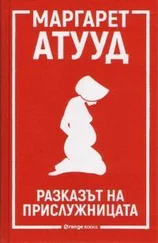“Did you have bad luck? Before you chose me?”
“Yes, I did,” she said, smiling.
“Did you pass the test?”
“I must have,” said my mother. “Or I wouldn’t have been able to choose a wonderful daughter like you.”
I was pleased with this story. It was only later that I pondered it: how could Job have allowed God to fob off a batch of new children on him and expect him to pretend that the dead ones no longer mattered?
—
When I wasn’t at school or with my mother—and I was with my mother less and less, because more and more she would be upstairs lying down on her bed, doing what the Marthas called “resting”—I liked to be in the kitchen, watching the Marthas make the bread and the cookies and pies and cakes and soups and stews. All the Marthas were known as Martha because that’s what they were, and they all wore the same kind of clothing, but each one of them had a first name too. Ours were Vera, Rosa, and Zilla; we had three Marthas because my father was so important. Zilla was my favourite because she spoke very softly, whereas Vera had a harsh voice and Rosa had a scowl. It wasn’t her fault though, it was just the way her face was made. She was older than the other two.
“Can I help?” I would ask our Marthas. Then they would give me scraps of bread dough to play with, and I would make a man out of dough, and they would bake it in the oven with whatever else they were baking. I always made dough men, I never made dough women, because after they were baked I would eat them, and that made me feel I had a secret power over men. It was becoming clear to me that, despite the urges Aunt Vidala said I aroused in them, I had no power over them otherwise.
“Can I make the bread from scratch?” I asked one day when Zilla was getting out the bowl to start mixing. I’d watched them do it so often that I was convinced I knew how.
“You don’t need to bother with that,” said Rosa, scowling more than usual.
“Why?” I said.
Vera laughed her harsh laugh. “You’ll have Marthas to do all of that for you,” she said. “Once they’ve picked out a nice fat husband for you.”
“He won’t be fat.” I didn’t want a fat husband.
“Of course not. It’s just an expression,” said Zilla.
“You won’t have to do the shopping either,” said Rosa. “Your Martha will do that. Or else a Handmaid, supposing you need one.”
“She may not need one,” said Vera. “Considering who her mother—”
“Don’t say that,” said Zilla.
“What?” I said. “What about my mother?” I knew there was a secret about my mother—it had to do with the way they said resting —and it frightened me.
“Just that your mother could have her own baby,” said Zilla soothingly, “so I’m sure you can too. You’d like to have a baby, wouldn’t you, dear?”
“Yes,” I said, “but I don’t want a husband. I think they’re disgusting.” The three of them laughed.
“Not all of them,” said Zilla. “Your father is a husband.” There was nothing I could say about that.
“They’ll make sure it’s a nice one,” said Rosa. “It won’t be just any old husband.”
“They have their pride to keep up,” said Vera. “They won’t marry you down, that’s for sure.”
I didn’t want to think about husbands any longer. “But what if I want to?” I said. “Make the bread?” My feelings were hurt: it was as if they were closing a circle around themselves, keeping me out. “What if I want to make the bread myself?”
“Well, of course, your Marthas would have to let you do that,” said Zilla. “You’d be the mistress of the household. But they’d look down on you for it. And they’d feel you were taking their rightful positions away from them. The things they know best how to do. You wouldn’t want them to feel that about you, would you, dear?”
“Your husband wouldn’t like it either,” said Vera with another of her harsh laughs. “It’s bad for the hands. Look at mine!” She held them out: her fingers were knobby, the skin was rough, the nails short, with ragged cuticles—not at all like my mother’s slender and elegant hands, with their magic ring. “Rough work—it’s all bad for the hands. He won’t want you smelling of bread dough.”
“Or bleach,” said Rosa. “From scrubbing.”
“He’ll want you to stick to the embroidery and such,” said Vera.
“The petit point,” said Rosa. There was derision in her voice.
Embroidery was not my strong suit. I was always being criticized for loose and sloppy stitches. “I hate petit point. I want to make bread.”
“We can’t always do what we want,” said Zilla gently. “Even you.”
“And sometimes we have to do what we hate,” said Vera. “Even you.”
“Don’t let me, then!” I said. “You’re being mean!” And I ran out of the kitchen.
By this time I was crying. Although I’d been told not to disturb my mother, I crept upstairs and into her room. She was under her lovely white coverlet with blue flowers. Her eyes were closed but she must have heard me because she opened them. Every time I saw her, those eyes looked larger and more luminous.
“What is it, my pet?” she said.
I crawled under the coverlet and snuggled up against her. She was very warm.
“It’s not fair,” I sobbed. “I don’t want to get married! Why do I have to?”
She didn’t say Because it’s your duty , the way Aunt Vidala would have, or You’ll want to when the time comes , which was what Aunt Estée would say. She didn’t say anything at first. Instead she hugged me and stroked my hair.
“Remember how I chose you,” she said, “out of all the others.”
But I was old enough now to disbelieve the choosing story: the locked castle, the magic ring, the wicked witches, the running away. “That’s only a fairy tale,” I said. “I came out of your stomach, just like other babies.” She did not affirm this. She said nothing. For some reason this was frightening to me.
“I did! Didn’t I?” I asked. “Shunammite told me. At school. About stomachs.”
My mother hugged me tighter. “Whatever happens,” she said after a while, “I want you to always remember that I have loved you very much.”
You have probably guessed what I am going to tell you next, and it is not at all happy.
My mother was dying. Everyone knew, except me.
I found out from Shunammite, who said she was my best friend. We weren’t supposed to have best friends. It wasn’t nice to form closed circles, said Aunt Estée: it made other girls feel left out, and we should all be helping one another be the most perfect girls we could be.
Aunt Vidala said that best friends led to whispering and plotting and keeping secrets, and plotting and secrets led to disobedience to God, and disobedience led to rebellion, and girls who were rebellious became women who were rebellious, and a rebellious woman was even worse than a rebellious man because rebellious men became traitors, but rebellious women became adulteresses.
Then Becka spoke up in her mouse voice and asked, What is an adulteress? We girls were all surprised because Becka so seldom asked any questions. Her father was not a Commander like our fathers. He was only a dentist: the very best dentist, and our families all went to him, which was why Becka was allowed into our school. But it did mean the other girls looked down on her and expected her to defer to them.
Becka was sitting beside me—she always tried to sit beside me if Shunammite did not shoulder her away—and I could feel her trembling. I was afraid that Aunt Vidala would punish her for being impertinent, but it would have been hard for anyone, even Aunt Vidala, to accuse her of impertinence.
Читать дальше
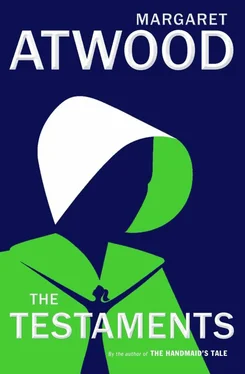
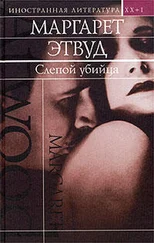
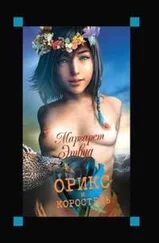
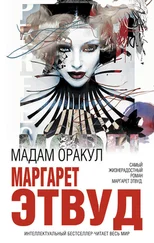
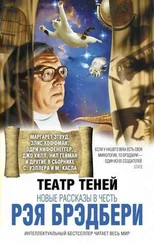
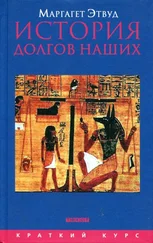
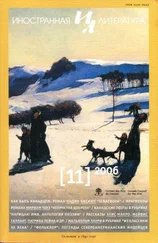
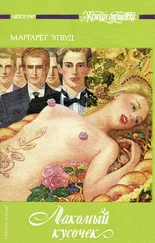

![Маргарет Этвуд - Лакомый кусочек [litres]](/books/384342/margaret-etvud-lakomyj-kusochek-litres-thumb.webp)
![Маргарет Этвуд - Избранные произведения в одном томе [Компиляция]](/books/389748/margaret-etvud-izbrannye-proizvedeniya-v-odnom-tome-thumb.webp)

